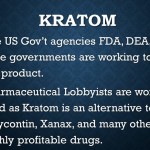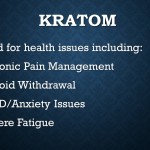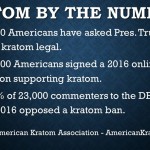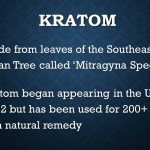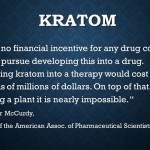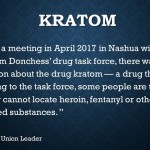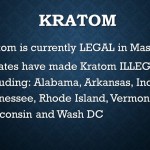By: Ira Keltz – Paying Attention TV Reporter
Public health experts believe that for every fatal drug overdose in the United States, there are approximately 30 non-fatal overdoses. That means in 2015, in the United States, there were over 900,000 opioid overdoses.
A possible alternative treatment for Opioid addiction and other health-related issues is called KRATOM.
Kratom is a natural supplement made from the leaves of a tropical tree, called ‘Mitragyna speciosa’, that is native to Southeast Asia and is a relative of the coffee plant. This drug only began to be seen in the U.S. in 2012, but it is also very easy to obtain online.
It’s currently legal in MA and NH and is sold as a capsule or as a tea and it’s available at local smoke shops, convenience stores and gas stations in the area.
Hundreds of thousands of people in the U.S. use Kratom daily for such health issues as chronic pain management, opioid withdrawal, as a mood enhancer, for severe fatigue, menstrual pain, and for treating panic/anxiety attacks.
In fact, thousands of veterans use this plant to treat PTSD-type symptoms. Its active alkaloids work on the mu-opioid, serotonin and dopaminergic receptors in the brain.
Unlike prescription narcotics, Kratom cannot cause respiratory depression, which is what typically causes death during an overdose. It is currently legal in both Massachusetts and New Hampshire, but is unregulated for quality much like other ‘nutritional supplements’.
Why are the FDA, DEA, and State Governments all working to ban this ‘miracle plant’?
Christopher McCurdy, president-elect of the American Association of Pharmaceutical Scientists says he believes it boils down to one thing, money. “There’s no financial incentive for any drug company to really pursue developing this into a drug.” Developing Kratom into a therapy would cost hundreds of millions of dollars, he said. On top of that, patenting a plant – it is nearly impossible.
Source :April 2017 NH Union Leader article:
The FDA, DEA, and state legislatures have all been lobbied heavily by the Pharmaceutical Industry, knowing that they could potentially lose millions of dollars if Kratom is widely used as an alternative to addictive painkillers like Oxycontin or Xanax for anxiety.
Many believe that Kratom may be a gateway into harder and more dangerous drugs.
As recently as two months ago (In November 2017) the FDA cited serious concerns over the marketing and effects (including death) associated with the use of Kratom in the United States, stating that “There is no reliable evidence to support the use of Kratom as a treatment for opioid use disorder; there are currently no FDA-approved therapeutic uses of Kratom… and the FDA has evidence to show that there are significant safety issues associated with its use.”
According to an article in the NH Union Leader from April:
“During a meeting in April 2017 in Nashua with Mayor Jim Donchess’ drug task force, there was a discussion about the drug Kratom — a drug that according to the task force, some people are turning to if they cannot locate heroin, fentanyl or other controlled substances.”
Linda Saunders Paquette of New Futures agreed that the new trend of Kratom should be studied further. “It is an herbal substance people use for pain relief that almost has a cult following,” she said, adding there are significant dependency concerns associated with the tree leaves from Southeast Asia.
The DEA put the Kratom debate into overdrive in August of 2016 when it tried to designate it as a Schedule 1 controlled substance on the same level as heroin or LSD within 30 days without any public comment period. The agency backpedaled after congressional lawmakers urged the agency to give the public a chance to comment. .[40] A group of 51 members of the U.S. House of Representatives and a group of 9 U.S. Senators each sent letters to Acting DEA Administrator Chuck Rosenberg protesting the listing and around 142,000 people signed an online White House Petition protesting it.
142,000 people signed an online petition because either themselves, a friend, or family member was using Kratom to deal with chronic pain or wean themselves off opioids or alcohol. [40]
Part of that letter from the U.S. Congressmen read, “As our nation continues to combat the public health crisis of opioid abuse, the federal gov’t has invested significant resources to develop alternative pain management strategies. This includes a study funded by the NIH – National Institute of Health, in partnership with the University of Massachusetts and University of Mississippi to investigate the use of Kratom as a remedy for opioid withdrawal. This study led the researchers to apply for a patent identifying the Kratom extract, as a USEFUL TREATMENT for other addictive drugs besides opiate derivatives. The DEA’s decision to place Kratom, as a schedule 1 substance, will put a halt to federally funded research and innovation surrounding the treatment of individuals suffering from opioid and other addictions – a significant health threat.“The DEA noted the responses, but said that it intended to go forward with the listing; a spokesman explained:
“We can’t rely upon public opinion and anecdotal evidence. We have to rely upon science.”
Nevertheless, in October 2016, the DEA withdrew its notice of intent while inviting public comments over a review period ending the 1st of December 2016.
In November 2016, the FDA said calls to U.S. Poison Control Centers regarding Kratom increased 10-fold from 2010 to 2015, and attributed 36 deaths associated with products containing Kratom.
The DEA also reports that there were 15 deaths related to the plant between 2014 and 2016. The Federal government reports that acetaminophen — the active painkiller in Tylenol — killed 1,500 people between 2001 and 2010. Nevertheless, the FDA concluded that Kratom could make the opioid epidemic worse.
“We have reached a critical point in the opioid epidemic,” FDA Commissioner Scott Gottlieb said in a statement. “The increasing use of Kratom as an alternative or adjunct to opioid use is extremely concerning.”
Marc Swogger, an associate professor in University of Rochester Medical Center, said there is a lot of anecdotal evidence that government moving to make Kratom illegal “doesn’t make any sense.” “People are reporting that they are using Kratom to successfully get off of opioids,” he said. “It helps with the withdrawal symptoms and helps them dial back their opioid use and some of them say it helped them quick.”
Currently there are 7 states, plus Washington D,C., that have made Kratom illegal. Those states include Alabama, Arkansas, Indiana, Tennessee, Rhode Island, Vermont, Wisconsin, and D.C. In addition, the U.S. Army had forbidden soldiers from using it.[47]
-Source: JAMA – The Journal of American Medicine in Aug 2017:

